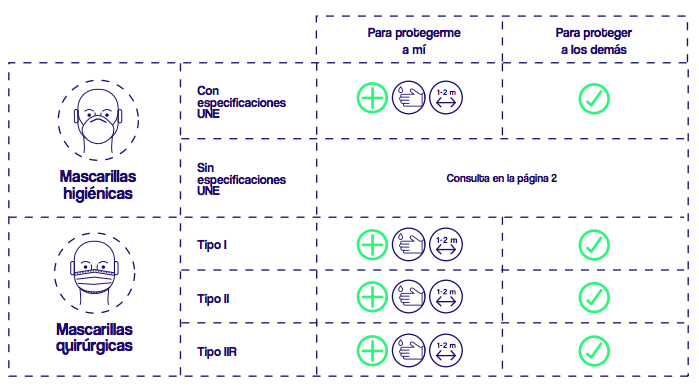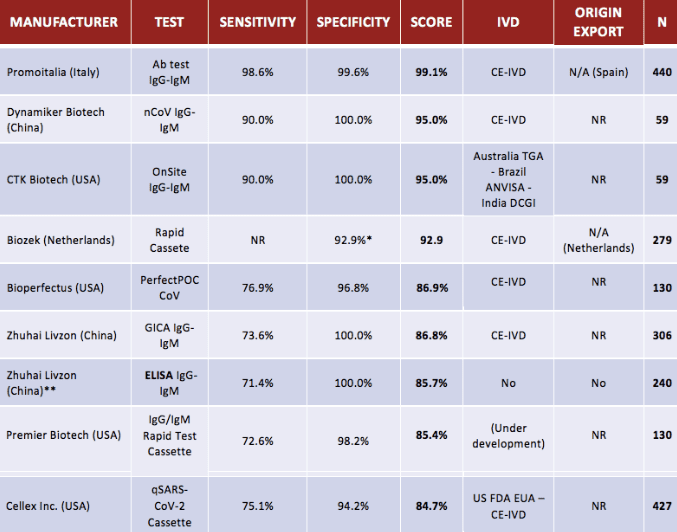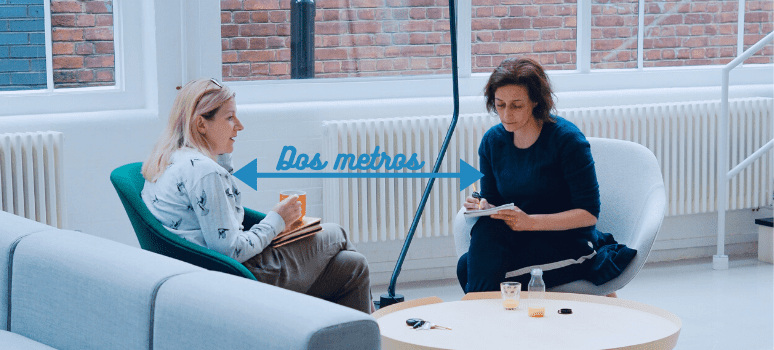The need to continue to protect ourselves against covid-19 infection in the de-escalation entails precautionary measures that we must take in our daily lives.
Masks, hand washing, social distance, cleanliness... but also testing and personal care. All this is necessary to keep covid-19 away and rather than as an obligation we should think of it as a habit to acquire quickly. This will protect us and others.
If we take into account the data from the seroprevalence study carried out in Spain, we now know that only five percent of the population has developed antibodies and the mortality rate is just over one percent. With this background data, we can see that the danger of the virus is high and that we cannot lower our guard against contagion.
Until there is a vaccine, and given the lethality of the virus, we have to be rigorous with protective measures, keeping our immune system strong and carry out high confidence analysis such as those of Biosalud Day Hospital.
Types of face masks and their mandatory use
The mandatory wearing of face masks in all public spacess if we cannot guarantee that we will always keep a distance of two metres, it raises a lot of doubts. This is the general rule because, for example, there is no reason to wear it when doing sport or sitting on a terrace in the street.
But which mask should we use? The Ministry of Health offers us a guide to choosing the most suitable face masks:
- Healthy people can use hygienic masks.
- Sick persons (symptomatic or asymptomatic) should wear a surgical mask.
- Persons in contact with the virus should preferably wear EPI masks.

The children from the age of 6 are also obliged to wear face masks.. Remember that there are different sizes as the mask must fit snugly from nose to chin.

In this article, we review the types of masks in detail that exist and their level of protection.
Safe meetings at home
Now that we are getting back in touch with family members, it is important to remember that the permitted gatherings of up to 10 persons may be held while maintaining security measures.2-metre distance and hand hygiene.
Two metres is the distance that droplets can travel from the nose or mouth of an infected person to our face when talking, coughing or sneezing. You should also be careful about the surfaces that these droplets can reach. If we touch them, we must avoid touching our faces.
In this regard, it is necessary to insist on the importance of handwashing when entering and leaving a room and when arriving home. And in the meantime, as often as necessary.
If the two-metre distance cannot be maintained, it is mask must be worn.
As for the surfaces and foodThe recommendations are as follows:
- food should be cleaned, separated and cooked or refrigerated. Covid is not transmitted through food but food surfaces, or packaging, can be contaminated.
- Wash hands after handling raw products or packaging and avoid touching your face.
- We should separate utensils for raw and cooked food, as well as different cutting boards for meat and for fruit or vegetables.
- It is also advisable to disinfect surfaces that are in contact with food and on which we cook, as well as cooking utensils.
Although the return to normality should be done with caution, if we want to share lunch, we should avoid talking over the crockery as well as sharing food and any utensils.
If I want to be tested, which tests are the safest?
The reliability of the tests is based on the sensitivity and specificity indices. Sensitivity determines the ability of the test to detect the virus in people who have contracted it. Specificity, on the other hand, determines the accuracy of the result: that cases that are negative are actually negative.
Ideally, when there is suspicion of disease, it is best to combining a PCR test with a rapid antibody test. The PCR becomes negative as the days go by and from day 14 of infection the percentage of positives drops to 70 percent. The serological test detects the generation of IgM and IgG antibodies.
The rapid antibody test that we carry out in Biosalud is the most reliable on the market, according to a study carried out by the American Society for Reproductive Medicine with the participation of two Spanish technology companies and Yale University. Distributed by the Life Lenght laboratory, it is the test we use in our centres in Madrid and Zaragoza. In fact, in the Autonomous Community of Aragon, authorisation is required from the health administration to carry out this type of test and, following our application, this was approved last March.



